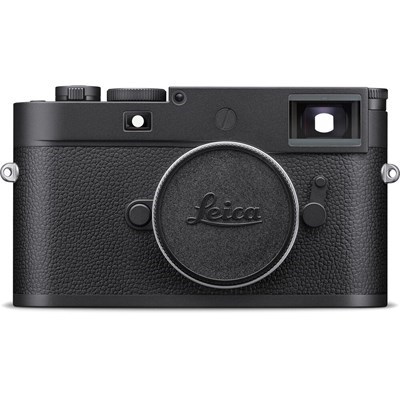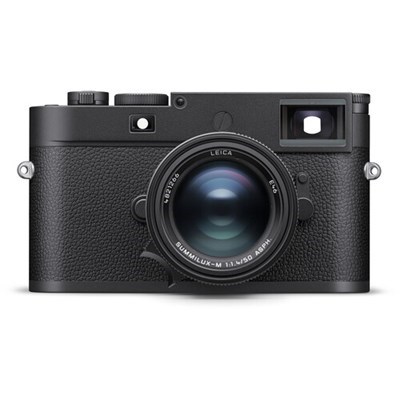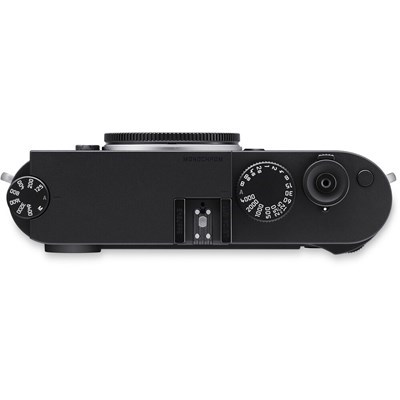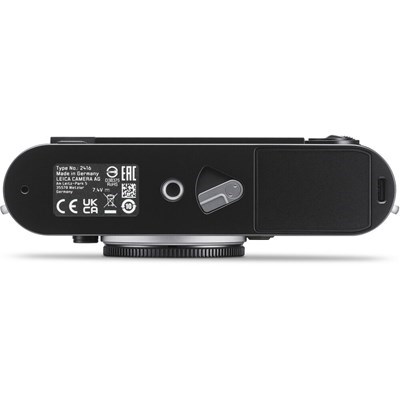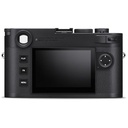Leica is committed to black & white photography with the M11 Monochrom, the fourth-generation model in their series of unique black & white-only digital rangefinder cameras. Taking the fundamental elements of the M11 platform, including the timeless M camera design, heightened resolution and Triple Resolution Technology, and updated connectivity, the M11 Monochrom adds a modified 60MP sensor that exclusively records black & white imagery. 60MP Full-Frame Black & White BSI CMOS Sensor Based on the M11s high-resolution back-illuminated sensor design, the M11 Monochrom has modified the 60MP full-frame CMOS sensor by removing the colour filter array (CFA), which offers the ability to solely record monochromatic imagery using only luminance values for enhanced clarity, depth, and resolution. By omitting this CFA, the camera also achieves a higher sensitivity range (compared to colour-enabled M11 cameras) of ISO 125-200000. The M11 Monochrom also retains the Triple Resolution Technology first debuted in the M11— this unique pixel binning process allows photographers to select 60MP, 36MP, or 18MP output, with each resolution making use of the full sensor area and the lower resolutions seeing an improvement in dynamic range and noise levels. The Maestro III processor contributes to fast processing, continuous shooting up to 4.5 fps, and the Triple Resolution Technology of the M11 Monochrom, as well as helps achieve a wider sensitivity range than in previous M cameras.
This ISO 125-200000 range has a lower base ISO than past M Monochrom models, for improved detail, along with a higher top end for greater flexibility when working in low-light conditions. And, due to the monochrome design of the sensor, noise levels and quality at ISO 200000 remains usable with a broad dynamic range and fine detail rendering. The M11 Monochrom is a photo-only camera that prioritizes manual operation, but a variety of improvements and functional updates have been made to make the M11 platform the most contemporary M camera yet: An electronic shutter function permits shooting at shutter speeds up to 1/16,000 sec, which is perfect for working with faster f/0.95 lenses without the need for ND filters. A mechanical shutter still offers shutter speed support up to 1/4000 sec and flash sync at 1/180 sec. Two digital zoom steps can simulate working with longer focal length lenses by cropping into the image slightly, at 1.3x (39MP) and 1.8x (18MP) levels. These are reversible crops when recording a DNG or permanent crops if shooting straight to JPG. Multi-field exposure metering is available in addition to spot and centre-weighted average, which helps reduce the need to meter and then re-compose before shooting. Long Exposure Noise Reduction helps to reduce the appearance of noise but can also be disabled for faster saving times. Monochrom Updates to a Traditional Rangefinder Design The M11 platform features a timeless design inspired by the original M camera, the M3, from 1954. This classic and recognizable form prioritizes intuitive handling and shooting along with a sleek and minimalist appearance. Lightweight aluminium top plate features a scratch-resistant black paint finish. The Monochrom version of the M11 has a revised appearance that, fittingly, removes all color from the body design in favor of a stealth-like monochromatic aesthetic.
The Leica Red Dot has been removed from the camera, the coating of the viewfinder has a dark chrome tint, the dial engravings are filled with white and gray paint, shutter and bayonet lock buttons are black, and there is a discreet MONOCHROM engraving on the top plate. The optical viewfinder is a large and bright 0.73x-magnification rangefinder with automatic parallax compensation and bright-line frame lines, which are set to match the image sensor size at a focusing distance of 6.6. On the front of the camera, a viewfinder frame selector can be used to manually change the apparent image field to help visualize the scene with varying focal lengths; options are available in 35mm/135mm, 28mm/90mm, and 50mm/75mm focal length pairs. Rear 2.95" 2.3m-dot touchscreen LCD features an updated design that is brighter for for improved visibility in sunny conditions. The LCD also features a durable, scratch-resistant sapphire glass cover. Revised menu layout matches the Q and SL systems for more intuitive navigation and faster settings changes right from the first menu page. Live view stabilization helps reduce the appearance of camera shake on the rear LCD or optional Visoflex 2; this electronic stabilization makes it easier to manually focus longer focal length lenses with greater accuracy. Despite the M11 platforms similarity to past M cameras, it features a variety of notable changes to its body design: First M camera to not feature a removable baseplate; instead, the M11 series borrows a design from the Q and SL systems and uses the BP-SCL7 battery, which is inserted directly into the base of the camera body. BP-SCL7 lithium-ion battery has a greater capacity than the previous generations battery and is CIPA-rated for 700 shots per charge. However, if working with the optical viewfinder only, approximately 1700 shots per charge is possible. Revised design also incorporates a single UHS-II SD memory card slot within the battery compartment. Built-in 256GB memory means you can forgo using a memory card altogether, or use the internal memory in conjunction with an SD card to simulate having dual card slots for splitting file types or for overflow storage. Image files can also be transferred from the internal memory to the SD card for easy backup. USB-C port on the base permits in-camera battery charging and file transferring. The USB-C port can be used in conjunction with the included FOTOS Cable, which allows direct attachment to a mobile device via the Leica FOTOS app for easy file management and sharing. Wi-Fi and Bluetooth can also be used for wireless connecting the camera to an iOS or Android device using the FOTOS app. In-app geotagging is possible along with the ability to select favourites and apply ratings to images via your mobile device.
